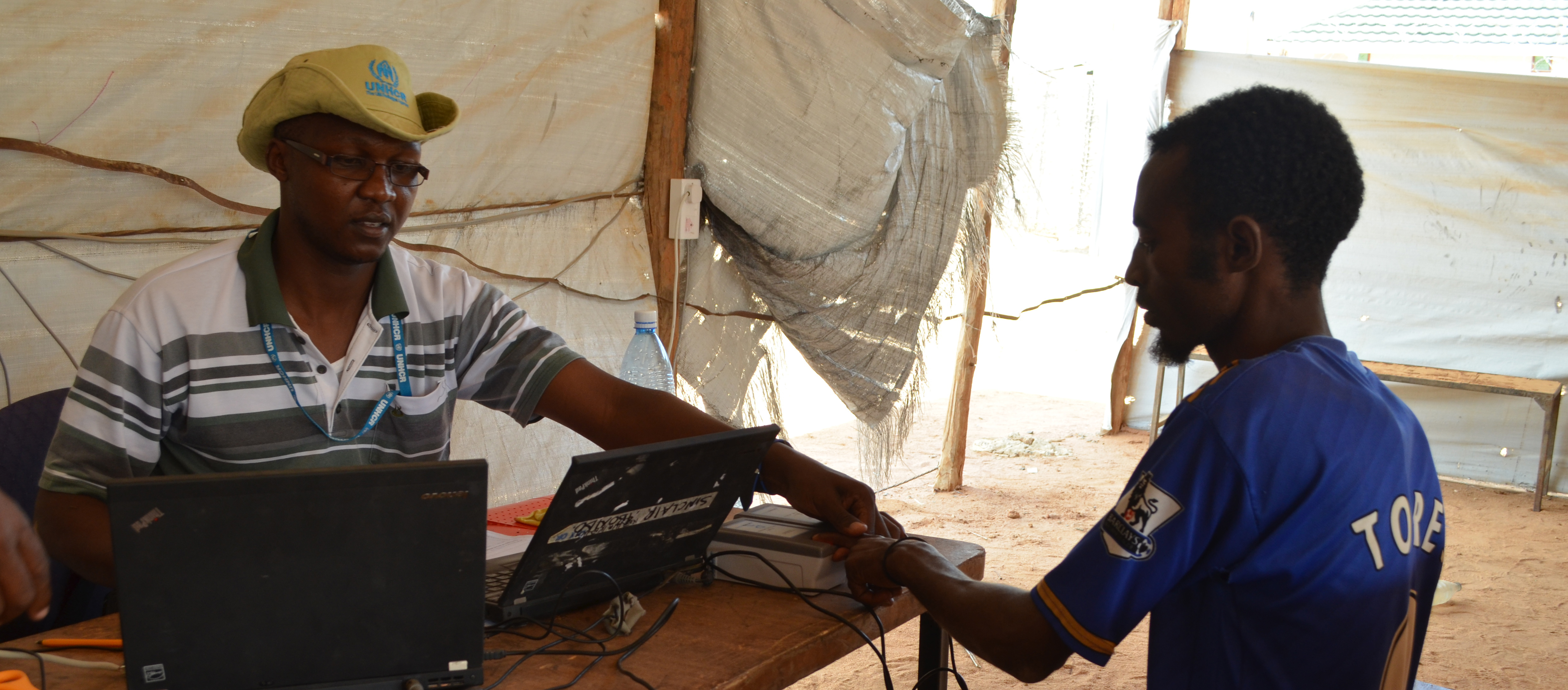Registration and documentation helps individuals, families and other groups of refugees get basic access to rights, services and assistance they need. Accurately registering children helps to prevent military recruitment and ensures family unity, and, in case of separated children, helps to reunite them with family members.
Registration is also the primary source of information to know more about the persons of concern: who and where they are, what their skills/profiles are and what their specific needs are. Registration enables UNHCR, its partners and the Government of Kenya to identify persons in need of special assistance and to respond to their need in a timely manner. It finally provides crucial information to seek appropriate durable solutions.
Establishing and implementing a unified registration process (UNHCR-Government of Kenya)
In Kenya, the Ministry of Interior and Coordination of National Government and UNHCR are in the process of merging their parallel registration systems in order to simplify the existing process and harmonize data on refugees and asylum seekers.
According to the common understanding of UNHCR and the Government of Kenya represented by Refugee Affairs Secretariat (RAS), the unified approach recognizes registration as a core protection activity and encompasses the registration process, documentation of refugees and others of concern, and management and use of population data.
This process of change is advanced in Nairobi, whereby since November 2016, RAS and UNHCR registration activities have been ‘unified’ and are being conducted by RAS personnel with the technical support of UNHCR in RAS premises. In Kakuma, the process was launched in July 2017 at field post 4. In Dadaab a similar process of change has been initiated whereby RAS and UNHCR had jointly replaced ration cards and issued proof of registration on secure paper to all households, notwithstanding the intention to close the camp in 2017. Additionally, in Dadaab, RAS and UNHCR have jointly conducted profiling of undocumented individuals leading to the most vulnerable being issued with tokens to access assistance.
Under the unified process, documentation is issued to persons of concern on secure paper.
Enhanced identity verification during resettlement process
In June 2017, a pilot project was rolled out whereby IOM was capacitated to securely confirm the identity of refugees planned to depart for resettlement using UNHCR’s biometrics system.
This process of identification against BIMs provides increased assurance that individuals undertaking interviews, medical checks and departure are the same as those who were originally registered by UNHCR prior to entering the resettlement process.

